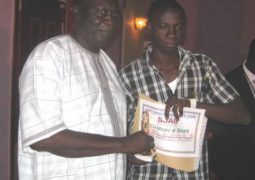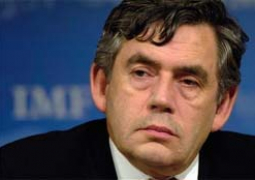This was revealed by Almamy Barrow of ActionAid International -The Gambia, which is actively involved in the fight against HIV and AIDs in The Gambia.
Barrow was speaking on Tuesday during a press conference held at the National Aids Secretariat, as part of activities to mark this year’s World AIDS Day on December 1.
Despite the disturbing statistics, the country has made huge achievements in the fight against the disease, Barrow added.
The Gambia has registered major in-roads in its fight against HIV and AIDS through efforts geared towards strengthening HIV and AIDS response programmes.
Over the years the prevalence of HIV in the Gambia has been fluctuating from 1.4% to 2%. The highest rate of 2.8% was registered in 2006 and after that it keeps on fluctuation within its normal level of 1 to 2%. The first case of HIV in the Gambia was diagnosed in 1986.
“We have been trying to control the epidemic, but it has been fluctuating,” Mr Barrow said. Heterosexual transmission, however, continues to be the main mode of spread of HIV in the country.
According to Mr. Barrow, one can have HIV and AIDS and still be living – going about his/her normal daily activities. Having HIV is not a death sentence, he declared.
“I have seen people who have been living with the disease for about 35 years, but they are taking the HIV treatment, and by looking at the person you cannot say that he/she is having the disease,” he said.
“The disease is manageable and one can be living with it for a number of years,” he added.
The theme for this year’s commemoration, as that of last year, is ‘Getting to Zero’ - zero new HIV infections, zero discrimination, zero AIDS related deaths, commonly called the three zeros.
Ousman Njie, senior programme administrator of the National Aids Secretariat, said the theme which focuses on zero AIDS related deaths signifies a push towards greater access to treatment for all; and is a call for governments to act now.
He said there are high indications that The Gambia can achieve the three zeros with all hands on deck.
The country officer of UNAIDS, Nuha Ceesay, said there are lined-up a number of activities to mark the day, including radio panel discussions, a march past, HIV counseling and testing campaign, a symposium on the role of youths against HIV and AIDS, among other activities.



